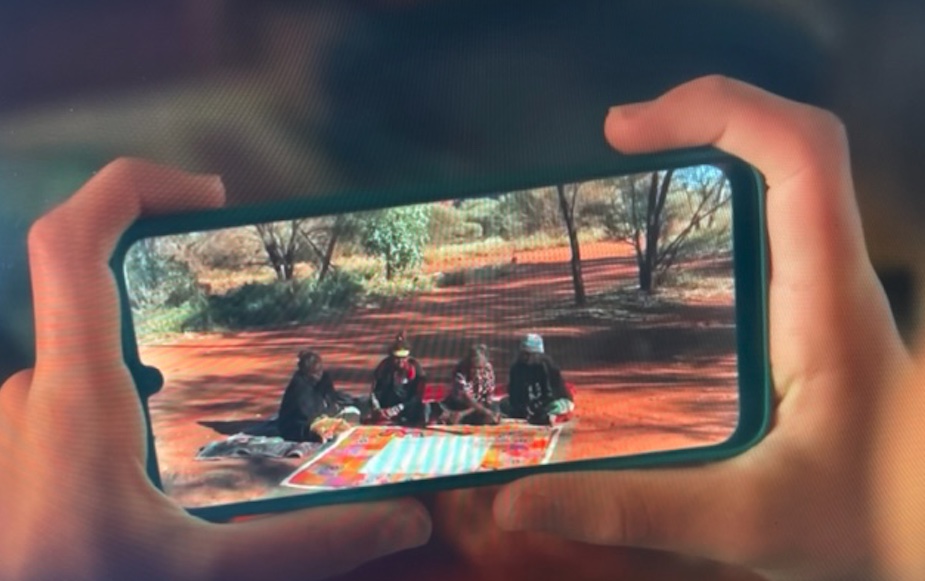Australians are being urged to join walks right around the country over the weekend of 16 and 17 September to build momentum for the campaign for a constitutionally enshrined Aboriginal and Torres Strait Islander Voice to Parliament.
Meanwhile, increasing numbers of health organisations are speaking out in support of the Voice, as recorded by Croakey’s portal (which is being regularly updated).
The latest organisations to issue statements of support include the First Nations Health and Wellbeing: Lowitja Journal editorial team, the Menzies School of Health Research, the Australian Medical Students Association, and Health Consumers Tasmania.
Twenty senior researchers and editors associated with the First Nations Health and Wellbeing: Lowitja Journal said the Voice “offers an essential mechanism for Aboriginal and Torres Strait Islander peoples in Australia to have a say in laws and policies which affect us”.
“The evidence is clear that programs and policies are more effective when they are informed by the people who are meant to benefit from them,” they said. “It provides a strong foundation for practical impact by seeking to improve health and wellbeing outcomes for a cohort affected by long-term economic disadvantage and social exclusion.”
According to Australian Progress, the referendum will set the tone and ambition for First Nations justice advocacy over the next decade.
“If we win a resounding Yes, then we can use the groundswell of public support to influence the political decisions that come next – on truth-telling, treaties, land rights, justice, housing, health, cultural heritage protection and more,” the organisation said in a message to its networks.
Meanwhile, the Victorian Aboriginal Community Controlled Health Organisation (VACCHO) was “thrilled” to host the launch of the ‘You’re The Voice’ campaign featuring John Farnham. CEO Jill Gallagher urged Australians to walk with First Nations’ people on “this life-changing journey”.

Pledge respect
Advocates for the mental health of Aboriginal and Torres Strait Islander people are urging politicians to be more respectful and less divisive during the referendum debate, warning of the harms being caused to First Nations people.
The call comes from the Australian Indigenous Psychologists Association (AIPA), Indigenous Allied Health Australia (IAHA), the national peak body for Aboriginal and Torres Strait Islander social and emotional wellbeing, mental health and suicide prevention Gayaa Dhuwi (Proud Spirit) Australia, as well as mental health research institute the Black Dog Institute.
In a joint statement, the organisations have put forward a set of principles to encourage more civil and inclusive debate: the Respectful Referendum Pledge.
This includes a commitment “to engage in discussions with respect and patience, being open to different viewpoints and experiences” and to avoiding “personal attacks, offensive language, inflammatory statements, or dismissive behaviour”.
Indigenous mental health advocates have been warning the government that the Voice referendum debate would have negative impacts on First Nations social and emotional wellbeing, just as the Same Sex Marriage Plebiscite had negative mental health impacts on the LGBTIQ+ community.
“We are already seeing first-hand the negative impacts of the debate in our communities, in terms of increased psychological distress, increased need for support and increased use of mental health services,” said Dr Clinton Schultz, Gamilaroi/Gomeroi man and Director of First Nations Partnership and Strategy at the Black Dog Institute.
“This Referendum is a much-needed conversation that we should not shy away from. But we should be aware of the risks involved in having the debate and be proactive in reducing its potential harms,” Schultz said in the statement.
“These guidelines present a way to move forward together, and protect the social and emotional wellbeing of First Nations people, during and after the Referendum.”
The Respectful Referendum Pledge ask politicians to:
- Listen to First Nations people
- Elevate First Nations voices
- Provide a safe and fair space for First Nations advocates
- Build common ground through shared goals by acknowledging the Human Rights of First Nations Peoples
- Set the standard for respectful debate
- Use culturally appropriate language
- Build trust through action.
ABC reports that Federal Opposition MPs have so far refused to meet with mental health advocates about the pledge, though they have been able to meet with the Government, crossbench and the Greens.




Supports
The Australian Indigenous Doctors Association (AIDA) recognises that the dialogue surrounding the referendum vote can be overwhelming and triggering for community members, and has put together some resources for anyone needing extra support in the lead up to 14 October.
• 13YARN [Thirteen YARN]: national crisis support line for mob who are feeling overwhelmed
or having difficulty coping (13 92 76) https://www.13yarn.org.au
• Gayaa Dhuwi (Proud Spirit) Aboriginal and Torres Strait Islander Leadership in Social and
Emotional wellbeing, Mental Health and Suicide Prevention:
• Doctors Health Advisory Service (DHAS) for doctors and students:
https://www.dhas.org.au/contact/contact-dhas-in-other-states-territories-and-newzealand.html
• Find an Aboriginal Community Controlled Health Organisation near you:
• Aboriginal & Torres Strait Islander Lived Experience Centre at Black Dog Institute:
https://www.blackdoginstitute.org.au/education-services/aboriginal-and-torres-straitislander-network
• Headspace: https://headspace.org.au/yarn-safe/mental-health-and-wellbeing
• Call Lifeline on 13 11 14, or text them online: https://www.lifeline.org.au

Latest statements





 Campaigning continues
Campaigning continues







 Meanwhile, Croakey editor and journalist Marie McInerney bumped into Noel Pearson this week in Naarm/Melbourne, who stressed the importance of the Voice for addressing health concerns, such as Rheumatic Heart Disease.
Meanwhile, Croakey editor and journalist Marie McInerney bumped into Noel Pearson this week in Naarm/Melbourne, who stressed the importance of the Voice for addressing health concerns, such as Rheumatic Heart Disease.
*** This post was updated after publication, on 7 September, with additional links and resources ***
See Croakey’s portal on the Voice, providing a platform for health voices









